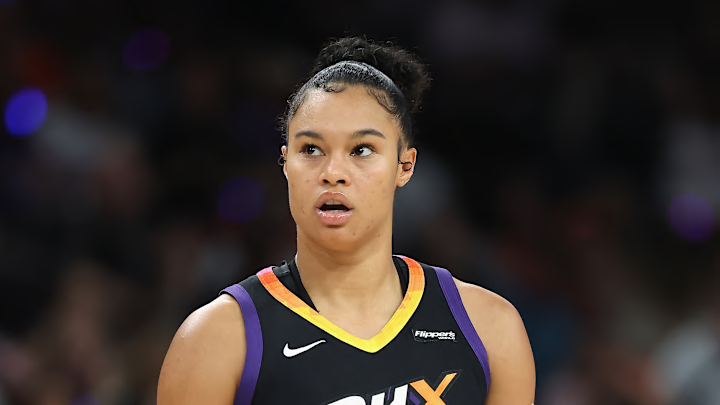NBA Commissioner Adam Silver gave a lengthy interview about the ongoing WNBA CBA negotiations and the furor spreading throughout the league — a discontent that has been rising since Napheesa Collier's September 30 exit interview in which she blasted the league's leadership was "the worst in the world."
Silver explained, that among other things, the conflict has become "too personal" — but that's exactly what it should be, the Mercury's Satou Sabally argued while speaking to reporters Tuesday. The money players make, which they (like the rest of us) use to support themselves and their families, is personal. Their careers, like those of so many others, are personal. The way they put their bodies in danger over and over again on the court is certainly personal — and that's one reason their counterparts in the NBA are paid as highly as they are.
The high salaries that most athletes receive aren't just based on popularity and winning. Sports are inherently physical, and there's a wear and tear on the body that isn't visible to the untrained eye. Players are paid for their time on the field, the court, the floor, but also for the years that will come once they've retired, and they're still dealing with a host of physical symptoms and problems that are baked into any line of work in which your body your most important tool.
That this is up for debate, or that it's easy to diminish as being "too personal," offers the ability to deeply assess not only the role of WNBA Commissioner Cathy Engelbert, but that of Silver, too. After all, the NBA's investment in the WNBA is enormous — and it's also shrouded in secrecy. There are plenty of articles out there about how the league still doesn't turn a profit, a stance that is misguided and frankly wrong — and also one that is difficult to defend or argue against, because the powers that be don't appear open to providing updated data on exactly how much money the league is or is not generating.
As Sabally and several other players have pointed out, WNBA leadership appears unwilling to pay players more, but also more focused than ever before on limiting their abilities to make more money elsewhere in the offseason. Traditionally that's been overseas in European leagues, but, increasingly, WNBA players are able to stay home to play in leagues like AU Pro Basketball and Unrivaled.
